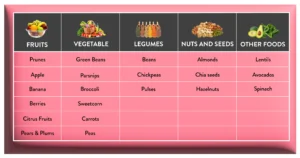Pregnancy is a period full of immense joy and amazement. The excitement of preparing to welcome a new life into the world is truly a beautiful journey. However, while embracing this wonderful miracle of life developing within, it’s natural to face a few unexpected discomforts and challenges along the way.
One common challenge that many expectant mothers experience during pregnancy is bloating and gas. This often occurs due to hormonal changes and other bodily adjustments. The good news is that these symptoms can be managed effectively through natural remedies.
A common concern that many pregnant women experience is bloating and gas. This condition is usually triggered by hormonal fluctuations and various physical changes in the body. The reassuring part is that these symptoms can be relieved naturally with simple home remedies.
But first, you need to understand the causes.
Why Does Pregnancy Trigger Increased Gas and Bloating?
Gas and bloating in early pregnancy are common:
“As your body undergoes many changes, your baby bump expands. This reduces the space in your stomach. This compression of your intestines can lead to uneven digestion, resulting in gas and bloating. Additionally, the supplements you take during the second half of your pregnancy, especially Iron, can also contribute to constipation, which can make you feel gassy and bloated”, says Dr Tripti Raheja, MBBS, MD (Obstetrics & Gynaecology) at the CK Birla Hospital, Gurgaon.
In pregnancy, your body produces progesterone hormones to prepare the endometrium for a fertilized egg to implant to grow. When progesterone hormones increase, food moves more slowly through your intestine, which leads to bloating, burping, and gas.
In addition to increasing the level of progesterone and growing the uterus, some other factors contribute to the cause of these symptoms.

10 Home Remedies to Ease Your Gas:
Maintaining regular bowel movements throughout pregnancy can help ease gas-related discomfort and home remedies for digestion problem during pregnancy. Here are some effective home remedies for gas to help you get started,
#1. Stay Hydrated:
The more you drink, the better you support your digestive system. Pregnant women are advised to drink at least eight to ten 8-ounce glasses daily to stay hydrated throughout the day. Make it a habit to sip water regularly. You can include fruits and vegetables in your daily diet for more benefits.
Additionally, you need to avoid carbonated drinks, which can increase gas. FODMAP stands for fermentable oligosaccharides, disaccharides, monosaccharides, and polyols. Foods high in FODMAPs can trigger gut symptoms, leading to irritable bowel syndrome.
A low-FODMAP diet may help manage these symptoms. Instead, opt for low-FODMAP juices, which are less likely to cause gas.
This includes:
- Grape
- Pineapple
- Cranberry
- Orange
Additionally, try sipping water rather than gulping it. Gulping can lead to swallowing air. This may increase gas. Sipping is generally better because gulping can disturb your fluid balance, cause indigestion, and potentially lead to impurities in the kidneys and bladder.
#2. Eat More Dietary Fibre
Consuming fiber-rich foods is another effective approach for stomach gas treatment during pregnancy. It includes :

These foods help alleviate gas and constipation. It softens stools and makes them easier to pass. Expected mothers should aim to consume at least 25 to 30 grams of fibre-rich foods daily. If you haven’t started yet, add them to your diet today.
#3. Do Physical Activity
Physical activity is one of the best ways to stay healthy and energetic throughout your journey. It stimulates intestinal movement, which improves digestion and alleviates constipation. Regular exercise enhances circulation to the digestive tract, promoting regular bowel movements. However, exercise doesn’t have to mean going to the gym or doing heavy workouts; light exercise and walking for at least 30 minutes a day can be very beneficial. If you’re curious about the types of exercise and yoga you can do during pregnancy, click here to learn more about prenatal yoga.
#4. Eat Small Proportion
The more food you intake in one sitting, the more gas you will produce. Try to eat in small portions, having six small meals or three moderate meals throughout the day. This helps prevent your digestive system from being overloaded, reduces gas and bloating, and can also control heartburn.
#5. Consume Probiotics
A happy gut promotes a happy mind and better health. A healthy balance of good bacteria in the stomach supports digestion. This balance can be maintained by including probiotic-rich foods in your daily diet. These include:
- Miso: It is a Japanese seasoning. It is made from fermented soybeans.
- Yogurt: A common source of probiotics, available in both solid and drink form.
- Kombucha: A fermented tea that’s rich in beneficial probiotics.
- High-quality dark chocolates: It can often contain probiotics.
#6. Take Fibre Supplements
If you are experiencing gastric problems during pregnancy and are looking for effective home remedies for gas, fibre supplements can be a great option that is:
- Metamucil
- Citrucel
- MiraLAX
These fibre supplements can provide quick relief from your gastric problems. However, it’s best to consult your Pregnancy Diet doctor before purchasing them.
#7. Add Herbal Tea
If you’re experiencing gastric issues, don’t worry—you’re not alone. Bloating and gas in early pregnancy are common. So, relax and enjoy a cup of herbal tea. You can also take a glass of warm water with lemon. These are effective home remedies for stomach pain and gas during pregnancy. They can help alleviate gastrointestinal issues and help you feel more relaxed. Consuming everything in moderation can benefit you, so don’t overdo it. You can consult your doctor beforehand.
Reduce your intake of fried and gas-inducing foods, as they can exacerbate digestive problems and contribute to bloating. Gas-inducing foods, such as cabbage, broccoli, and onions, can also lead to increased discomfort. While fried foods may not directly produce gas, they can slow down the digestion process, resulting in bloating. To maintain comfort and health, it’s best to avoid both fried and gas-inducing foods.
#9: Chew Food Thoroughly
Take it slow and chew your food thoroughly. Chewing well increases the production of digestive enzymes, which helps keep your stomach healthy and prevents overloading your gastrointestinal system. Eating in rush can cause you to swallow air, leading to gas in the stomach. To relax, take a few deep breaths before and during your meal, and avoid eating when you’re stressed.
#10. Say No to Sugary foods
Sweet cravings during pregnancy are common, but managing your refined sugar intake is essential. Carbonated beverages and sweetened fruit juices often contain high levels of fructose corn syrup. It contributes to bloating. Instead, opt for fresh fruit juices, such as apple, apricot, banana, and peach, to satisfy your craving. Moreover, reduce sugary foods and chewing gum, as they have sorbitol, which leads to gas and bloating during pregnancy.
Also Read: Understanding the First Trimester: A Comprehensive Guide
Conclusion:
Gas and bloating are common symptoms experiencing expectant mothers, but they’re not always something to take lightly. If you are experiencing severe stomach pain lasting more than 30 minutes or having ongoing constipation issues, consult your doctor immediately. Additionally, you can try the effective home remedies for gas and bloating mentioned above. These remedies will provide quick relief and comfort.
FAQs Around Gas During Pregnancy:
How to cure gas in pregnancy?
To manage gas during pregnancy, avoid foods that trigger gas, such as fried foods, refined sugars, cabbage, broccoli, wheat, and potatoes. Consider for smaller, more frequent meals, and eat slowly while chewing thoroughly. If you are experiencing severe gas and bloating, consult your doctor about potential fiber supplements. Additionally, regular exercise and physical activity can help to maintain overall health and alleviate gas.
Is lots of gas normal in pregnancy?
Yes, it’s common. If you’re pregnant and experiencing more gas than usual, don’t worry. Gas during early pregnancy is normal. The average person produces around 4 pints of gas daily and passes gas up to 18 times a day. When we digest and process food, gases are produced as a by-product. They can’t stay in the body, so they try to escape through the digestive tract. If they can’t pass, they can cause bloating or pain.








